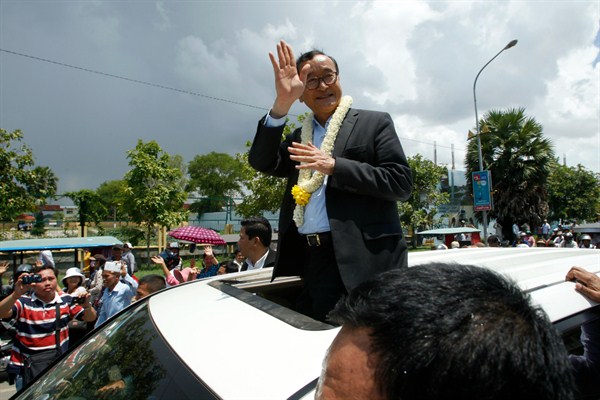The politically motivated prosecution last month of opposition leader Sam Rainsy was a rude interruption to Cambodia’s so-called culture of dialogue, the name for the political settlement Cambodia’s government and the opposition reached in 2014 after contested elections. The interruption to this rapprochement was not very surprising: Cambodian Prime Minister Hun Sen is Asia’s longest-serving ruler, and he has not achieved this feat by acting benignly toward his political opponents.
As Stephanie Giry documented in Foreign Affairs, over the course of his 30 years in power, Hun Sen has “coaxed or cowed, corrupted or co-opted, defanged, sidelined, or otherwise neutralized a large cast of adversaries, far and near.” Rainsy is the latest of them, but this isn’t the first time he has been the target of Hun Sen’s machinations. He first went into self-imposed exile to escape a politically motivated conviction in 2005. He was subsequently pardoned in 2006, only to flee charges and a conviction in absentia again in 2010. He was then pardoned again and invited by Hun Sen to return to Cambodia in 2013.
That set the stage for the latest act in this repeating drama, when Hun Sen’s Cambodian People’s Party (CCP) won national elections by a small margin in July 2013. Rainsy’s opposition Cambodia National Rescue Party (CNRP) accused the CCP of manipulating the election results and boycotted the National Assembly. Finally, in July 2014, after a year of massive protests and political deadlock in which the CNRP refused to participate in government, Hun Sen and Rainsy reached a deal. The CNRP took its seats in parliament in return for minor concessions from Hun Sen, which included acknowledgements that there had been irregularities in the voting process.

